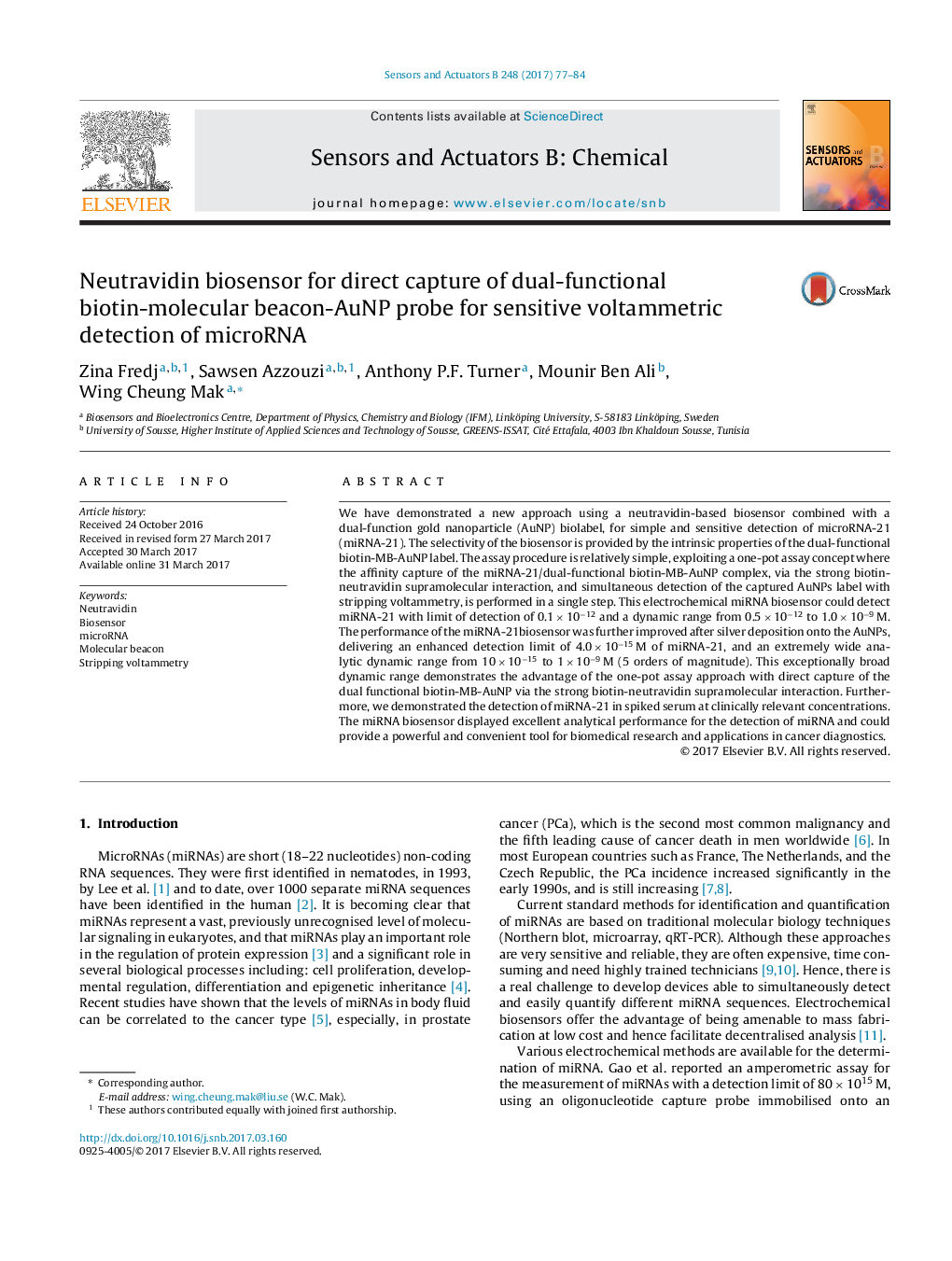| Article ID | Journal | Published Year | Pages | File Type |
|---|---|---|---|---|
| 5009156 | Sensors and Actuators B: Chemical | 2017 | 8 Pages |
â¢miRNA-21 biosensor based on of neutravidin electrode and biotin-MB-AuNP label.â¢Signal amplification by silver enhancement technique.â¢Highly selective and sensitive (LOD of 4.0 Ã 10â15 M) for miRNA-21 detection.â¢Extremely wide analytic dynamic range for detection of miRNA 10 Ã 10â15-1 Ã 10â9 M (5 orders of magnitude).â¢Detection of miRNA-21 in spiked serum at clinically relevant concentrations.
We have demonstrated a new approach using a neutravidin-based biosensor combined with a dual-function gold nanoparticle (AuNP) biolabel, for simple and sensitive detection of microRNA-21 (miRNA-21). The selectivity of the biosensor is provided by the intrinsic properties of the dual-functional biotin-MB-AuNP label. The assay procedure is relatively simple, exploiting a one-pot assay concept where the affinity capture of the miRNA-21/dual-functional biotin-MB-AuNP complex, via the strong biotin-neutravidin supramolecular interaction, and simultaneous detection of the captured AuNPs label with stripping voltammetry, is performed in a single step. This electrochemical miRNA biosensor could detect miRNA-21 with limit of detection of 0.1Â ÃÂ 10â12 and a dynamic range from 0.5Â ÃÂ 10â12 to 1.0Â ÃÂ 10â9Â M. The performance of the miRNA-21biosensor was further improved after silver deposition onto the AuNPs, delivering an enhanced detection limit of 4.0Â ÃÂ 10â15Â M of miRNA-21, and an extremely wide analytic dynamic range from 10Â ÃÂ 10â15 to 1Â ÃÂ 10â9Â M (5 orders of magnitude). This exceptionally broad dynamic range demonstrates the advantage of the one-pot assay approach with direct capture of the dual functional biotin-MB-AuNP via the strong biotin-neutravidin supramolecular interaction. Furthermore, we demonstrated the detection of miRNA-21 in spiked serum at clinically relevant concentrations. The miRNA biosensor displayed excellent analytical performance for the detection of miRNA and could provide a powerful and convenient tool for biomedical research and applications in cancer diagnostics.
